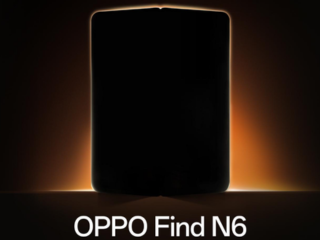- Home
- Mobiles
- Mobiles Features
- E Commerce Smartphone Wars Are Part of a Bigger Picture
E-Commerce Smartphone Wars Are Part of a Bigger Picture

Yash Agarwal, a sales man at a New Delhi-based travel firm, purchased his first smartphone from a neighbourhood mobile store about three years ago. When that phone had only little life left in it, he bought a Xiaomi smartphone from Amazon India late last year.
This was the first purchase worth over Rs. 9,000 that the 31-year-old Janakpuri West-resident had made online - but it was the beginning of dozens of orders he would place on the e-commerce store in the subsequent months.
Agarwal did precisely what Amazon had been hoping. The e-commerce giant, which entered India four years ago, has been ramping up its phone category for the last two years, in hopes that smartphones would serve as the entry point for millions of Indians to get meaningfully involved in its ecosystem. And that bet seems to be working.
Smartphones are increasingly becoming popular on Amazon India, which according to an industry source, sold about 20 million units last year. It's already among the top three product categories for the company, Arun Srinivasan, category leader of consumer electronics at Amazon India, said in an interview with Gadgets 360. He further claimed that Amazon India has established itself as the fastest growing marketplace for smartphones in the country.
The smartphone category is also among the top sources for new customer acquisition in India, Srinivasan added. "While a customer who purchases a smartphone today may not buy another smartphone for many months, but that customer is now engaged with Amazon," he said. "As long as we have given them good value on the smartphone, and they had a good experience, they are likely to repeat and buy multiple products," he added, saying that same philosophy works across select other product categories as well.
Srinivasan said the company has observed 100 percent year-on-year growth in sales of smartphones, despite demonetisation that took place late last year, and the roll-out of the Goods and Service Tax (GST) this year. During demonetisation, several companies reported a drop in sales of phones. The roll-out of GST, which happened last month, made a dent in their businesses, too.
But it is not the growth in sales that is particularly interesting, Srinivasan said, but the people who are purchasing these phones. Amazon India has seen a 460 percent yearly sales growth in tier 2 cities, and 600 percent sales growth in tier 3 cities, he told us.
Seeking exclusives
To achieve that growth, Amazon has been aggressively partnering with local and international smartphone vendors. Srinivasan says it has reached to a point where Amazon India is now working with every smartphone vendor that operates in India - excluding the exclusives on competitors like Flipkart, obviously - including the ones like BlackBerry that are unlikely to move a ton of inventory. "We continue to remain a neutral platform, and let customers decide what kind of phones they want to purchase," he said. "We will never favour one brand over another, we provide the largest range of offering to customers."
![]()
But partnering alone wouldn't give Amazon India a major advantage, as those companies also strike deals and sell phones on Flipkart and other rival online stores. The trick, Srinivasan said, is striking exclusive deals. Several smartphone vendors including OnePlus remain exclusive partners of Amazon India. The Chinese company's OnePlus 5 smartphone was the top-selling product last month during Prime Day, which the company held in select markets, including (for the first time) in India.
Over the past years, Amazon has struck partnerships for over 140 different smartphone models that are exclusively sold through its website. One such smartphone model is the iPhone 6 32GB, which Apple introduced in select markets earlier this year. That particular model is not available through any other channel.
Srinivasan says Amazon doesn't pay any brand to be an exclusive partner, or hold an exclusive deal on the website. But the company helps those brands market their products on television, print, and offers other incentives to even support them through offline retail, which continues to account for more than 60 percent of all phone shipments in India, according to marketing research firm Counterpoint. Although there may be no direct payments, from this it's clear that Amazon is willing to spend heavily to get those exclusive deals - and probably, Flipkart is doing a similar thing with its own exclusives.
Amazon sells smartphones in every market where it operates, but the reception it has seen in India, the world's fastest growing smartphone market, has been particularly interesting and unique, Srinivasan said. In India, smartphones have played "a little more evolved" role in helping the company acquiring new customers, he added.
Building ecosystems
An analyst commended Amazon's strategy in India of using smartphones to win new customers, drawing comparisons with the efforts from Google and Facebook, both of which are also increasingly trying to bring more Indians online, and eventually, to their ecosystems.
"Each company has its own strategy in emerging markets, and Google has obviously had several initiatives aimed at getting more low-cost Android phones sold in emerging markets. But Amazon's strategy is a little different because it is selling the phones itself," Jan Dawson, chief analyst and founder of research firm JackDaw told Gadgets 360.
In 2015, Google partnered with state-run ISP to offer free Internet access to 400 railway stations in India. Two years later, the free service, dubbed RailWire, is already live in 140 stations and people seem to be making use of it. Facebook, which suffered a major blow to its Free Basics in India last year, has already kickstarted an Express Wifi project to provide low-cost Internet access in towns and villages across India.
These efforts could help these Silicon Valley companies gain millions of new users in India, one of the few markets left that still has hundreds of millions of people who are not online yet.
Exclusives are just the first step
As part of its bet on using smartphones to hook people to its platform, Amazon has also been bundling several of its apps including Kindle, Amazon Pay, and Prime Video on select smartphones that it sells exclusively through its marketplace. The Moto G5 smartphone, which was sold through Amazon India earlier this year, shipped with its Amazon Appstore app, and Amazon Pay pre-installed on the device.
But these efforts might just be the beginning of company's ambitions. JackDaw's Dawson said Amazon would at some point like to sell its own smartphones in India, something Gadgets 360 had also reported in May this year. The company was testing at least one prototype internally, we reported at the time.
"And it would be a natural extension of that strategy to make its own phones with the Amazon services even more tightly integrated," Dawson said. "For now, the risk for Amazon is that it has no control over what people do right now after they buy a phone. It sounds like it's working out well for now but there's no reason Flipkart or some other company couldn't try to sell things to those people too. If Amazon made its own phones if could ensure that its store app was front and center."
Going forward, Amazon projects the demand of smartphones in India will continue to grow. "Definitely on Amazon, we don't see any slowdowns," Srinivasan said.
"We have grown really fast in the last few years. If you see the kind of launches we have had, and with so many brands. People who never looked at Amazon because we are just four years [old], that's changing quickly. We get all types of customers now," another executive said.
For details of the latest launches and news from Samsung, Xiaomi, Realme, OnePlus, Oppo and other companies at the Mobile World Congress in Barcelona, visit our MWC 2026 hub.
Related Stories
- Samsung Galaxy Unpacked 2026
- iPhone 17 Pro Max
- ChatGPT
- iOS 26
- Laptop Under 50000
- Smartwatch Under 10000
- Apple Vision Pro
- Oneplus 12
- OnePlus Nord CE 3 Lite 5G
- iPhone 13
- Xiaomi 14 Pro
- Oppo Find N3
- Tecno Spark Go (2023)
- Realme V30
- Best Phones Under 25000
- Samsung Galaxy S24 Series
- Cryptocurrency
- iQoo 12
- Samsung Galaxy S24 Ultra
- Giottus
- Samsung Galaxy Z Flip 5
- Apple 'Scary Fast'
- Housefull 5
- GoPro Hero 12 Black Review
- Invincible Season 2
- JioGlass
- HD Ready TV
- Latest Mobile Phones
- Compare Phones
- Apple iPhone 17e
- AI+ Pulse 2
- Motorola Razr Fold
- Honor Magic V6
- Leica Leitzphone
- Samsung Galaxy S26+
- Samsung Galaxy S26 Ultra
- Samsung Galaxy S26
- Asus TUF Gaming A14 (2026)
- Asus ProArt GoPro Edition
- Apple iPad Air 13-Inch (2026) Wi-Fi + Cellular
- Apple iPad Air 13-Inch (2026) Wi-Fi
- Huawei Watch GT Runner 2
- Amazfit Active 3 Premium
- Xiaomi QLED TV X Pro 75
- Haier H5E Series
- Asus ROG Ally
- Nintendo Switch Lite
- Haier 1.6 Ton 5 Star Inverter Split AC (HSU19G-MZAID5BN-INV)
- Haier 1.6 Ton 5 Star Inverter Split AC (HSU19G-MZAIM5BN-INV)

















